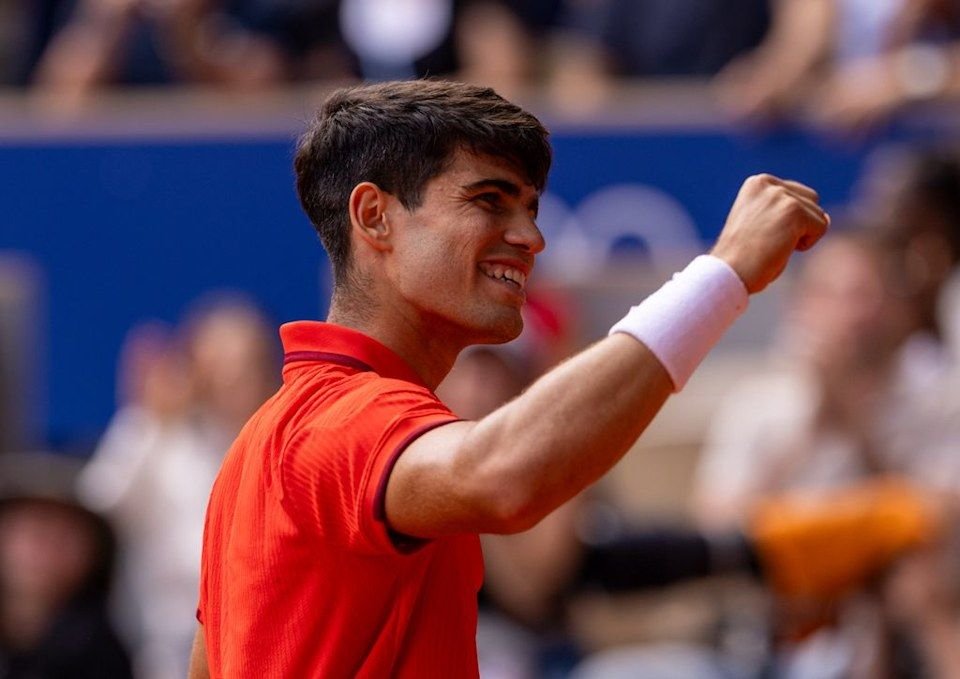In a surprising turn of events at the Freestyle Chess Grand Slam in Weissenhaus, Germany, reigning World Champion Dommaraju Gukesh’s campaign was halted in the quarterfinals by the formidable Fabiano Caruana. The 18-year-old Indian prodigy, who has been a dominant force in classical chess, found the unconventional format of Freestyle Chess challenging, leading to his early exit from the title contention.
Quarterfinal Clash: Gukesh vs. Caruana
The quarterfinals commenced with Gukesh facing Caruana, the world number two. In the first game, Gukesh, playing with the white pieces, engaged in a complex battle but ultimately succumbed to Caruana’s precise play. This loss placed Gukesh in a must-win situation in the second game to stay alive in the match.
In the second game, Caruana, wielding the white pieces, showcased exceptional opening preparation. Employing a randomized back-rank position, characteristic of Freestyle Chess, the game began with position 270, featuring knights on a1 and d1, rooks on b1 and h1, the king on c1, the queen on e1, and bishops on f1 and g1. Caruana’s strategic deployment of his knights and pawns allowed him to seize control of the center early on.
Gukesh, attempting to counter, made an ambitious move with 7…Bxa2, aiming to capture an advanced pawn. However, this decision backfired as it activated Caruana’s rook on a1, leading to significant material losses for the Indian grandmaster. Despite efforts to regroup, Gukesh found himself a pawn down and in a precarious position by the 13th move. Recognizing the improbability of securing the necessary victory, Gukesh conceded defeat, resulting in a 0-2 scoreline in favor of Caruana.
Post-Match Reflections
This quarterfinal exit marks a rare setback for Gukesh, who has been lauded for his rapid ascent in the classical chess arena. The Freestyle Chess format, which randomizes the starting positions of pieces, diminishes the advantage of deep opening preparation—a facet where Gukesh typically excels. This element of unpredictability posed a significant challenge for the young champion.
Reflecting on his performance, Gukesh acknowledged the difficulties posed by the format, stating, “The randomized positions require a different strategic approach. It’s a learning experience, and I’ll adapt my preparation for future events.”
Continuing the Competition
Although eliminated from the title race, Gukesh’s journey in Weissenhaus is not over. He will now compete in the classification matches to determine the 5th to 8th positions. His next opponent will be the loser of the quarterfinal match between Hikaru Nakamura and Javokhir Sindarov. The stakes remain significant, with the 5th place finisher earning $50,000 and 10 points, while the 8th place finisher will receive $10,000 and 4 points.
Looking Ahead
This tournament has been a period of introspection for Gukesh. Following a narrow defeat to compatriot R. Praggnanandhaa in the Tata Steel Chess tournament final just a week prior, Gukesh has faced consecutive challenges. These experiences underscore the evolving nature of competitive chess and the need for adaptability across various formats.
As the chess world continues to embrace innovative formats like Freestyle Chess, players are compelled to diversify their strategies and preparation methods. Gukesh’s recent experiences highlight the importance of versatility and the continuous evolution required to remain at the pinnacle of the sport.
In conclusion, while Gukesh’s bid for the Freestyle Chess Grand Slam title has concluded earlier than anticipated, his resilience and commitment to growth remain evident. The young champion’s journey serves as a testament to the dynamic challenges of modern chess and the relentless pursuit of excellence.










